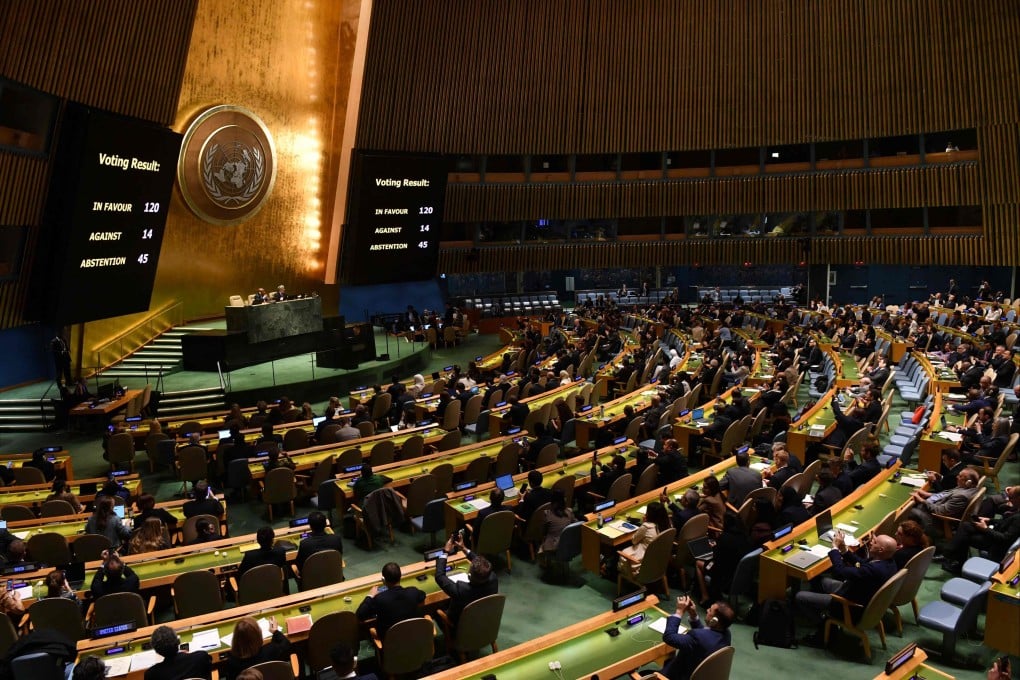Advertisement
UN to vote on first resolution on AI, aimed at ensuring ‘safe, secure and trustworthy’ use of the technology
- The United States, which sponsored the resolution, hopes the UN will adopt it by consensus, meaning it would be supported by all 193 member states
- Big Tech companies generally have supported the need to regulate AI, while lobbying to ensure any rules work in their favour
Reading Time:3 minutes
Why you can trust SCMP

The United Nations General Assembly is set to vote on Thursday on what would be the international organisation’s first resolution on artificial intelligence (AI), aimed at ensuring the powerful new technology benefits all nations, respects human rights and is “safe, secure and trustworthy”.
Advertisement
The United States, which sponsored the resolution, has said it hopes the world body will adopt it by consensus, meaning it would have the support of all 193 UN member nations.
US National Security Adviser Jake Sullivan said that if the resolution is adopted it will be a “historic step forward” in fostering the safe use of AI.
The resolution “would represent global support for a baseline set of principles for the development and use of AI and would lay out a path to leverage AI systems for good, while managing the risks”, Sullivan said in a statement to Associated Press earlier in March.

The draft resolution aims to close the digital divide between rich developed countries and poorer developing countries, and make sure they are all at the table in discussions on AI. It also aims to make sure that developing countries have the technology and capabilities to take advantage of AI’s benefits, including detecting diseases, predicting floods, helping farmers, and training the next generation of workers.
Advertisement

Advertisement